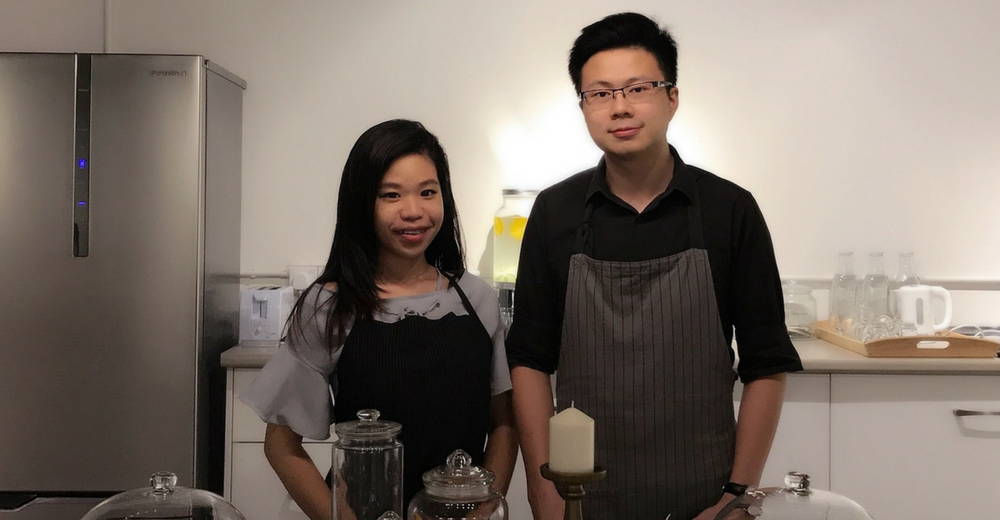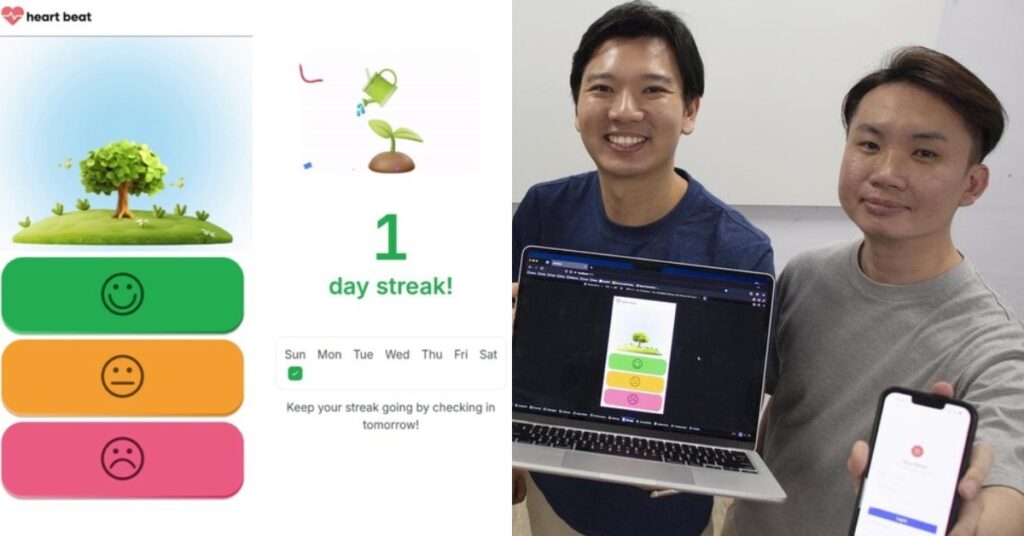As a recently graduated student, Johnny of HERSERLEF described a situation we’re all too familiar with.

“There is a pressure to either leave or order more. You are not done with your work and will have to spend on unnecessary drinks and cakes. The total bill is expensive yet it is uncomfortable to hog a space for long hours, considering the high traffic flow of a café,” said Johnny.
So, while they’re still young with the ability to push themselves to work long hours and have less commitments, co-founders Johnny and Ed Jane decided to start a café based on a concept they saw in Russia.
They Call Their Space HERSERLEF

Located in Sri Petaling, they don’t think of themselves a café. Instead, they consider themselves somewhere in between a co-working space and a café.
Even if you stay the whole day to work there, you’ll only have to pay a total of RM16.20 a day, inclusive of free-flow coffee and snacks.
This is in stark difference from how their inspiration, Ziferblat of Russia, runs their time-based space.
If HERSERLEF tried to go with the valuation that Ziferblat offers, they would have to charge RM35 a day. It would’ve been RM15 for the first hour, RM10 for the second, and RM5 for the next two consecutive hours.
“No one will come if we go with RM35,” said Johnny. “Even if you sit in a cafe, your bill might be less than RM35. Why bother?”
Instead, HERSERLEF banks their survival as a business on returning customers who would provide a consistent flow of cash into their business.
But if you don’t plan on spending the whole day there, HERSERLEF charges by the minute up until the RM16.20 cap.
Right now, it charges 18 cents per minute, so that patrons who only want to stay for a few hours have the freedom to do so.
How They Keep Costs Low

The keys of their business are the idea of self-service and keeping the commitments low.
Basically, it functions more or less like a large pantry that you can work in. In HERSERLEF, you make your own coffee, after a quick tutorial by HERSERLEF’s staff.
And like the European culture that we desperately need to encourage here in Malaysia, customers are expected to clean up any trays, plates or cups themselves.
Of course, since they don’t offer any substantial meals there, patrons are welcome to leave for lunch without restarting the 18-cent clock. In fact, Johnny is happy to point out all of the F&B locations available around their little shop, including a McDonald’s a minute’s walk away.
You’re also welcome to bring in your own food for consumption in the space.
“We feared no one would turn up.”

Seeing that this is an unfamiliar concept in Malaysia (and Johnny only recently heard of Coffeemin in Singapore), the pair struggled to start up. To them, “grown-ups” wouldn’t take them seriously.
The team had a lot of doubts. They still currently rely on word of mouth, and in fact they wondered if anyone would even turn up on opening day because they didn’t spend much time promoting.
Luckily, people did come. And these patrons slowly turned into regulars.
Now, according to Johnny, 75% of their daily walk-ins are regulars. During exam season, the pair saw a lot of students in their store. They’ve also seen everything from food bloggers, to programmers, and even a student-run NGO.
As proof of concept, according to Johnny, they’ve actually broken even in their second month.
Not to mention, they have no precedent for this market. They’re basically paving the way for themselves.
“We are inexperienced in the field, so we need to work 5 times harder to make it work. We needed to really plan things out, making sure we did not overlook anything, going out to approach people and hunt for things that we need. We approached everything in a very hands-on way.”
And as pioneers in the Malaysian market, they really had no guide to go on, apart from a European concept that they felt, had to be changed to work in Malaysia.
“It was all based on assumptions but supported with proper research and studies of behaviours.”
“We kept seeking for guidance and advice. Most people that we approached, advised us to abort the whole thing. Only a handful of people took the idea seriously.”
Besides working there, the spot is also available for people to hang out in. They do hold events every once in a while, though keeping their clientele in mind, they try to keep events at a minimum on weekdays.
Some might see HERSERLEF—like co-working spaces—to be a gimmick. Others might look at it instead and see an opportunity to open something similar in their own areas.
Nevertheless, I’m personally glad to see entrepreneurs venturing out in their own direction instead of staying on the beaten path.
And the fact that they’ve broken even definitely shows that with the right strategising and branding, there’s a way for businesses like this to keep up. Let’s hope that it stays that way after the novelty subsides.
Also Read: Stories Behind These 10 WTF Photos That Prove Prague Is Weirder Than Japan










